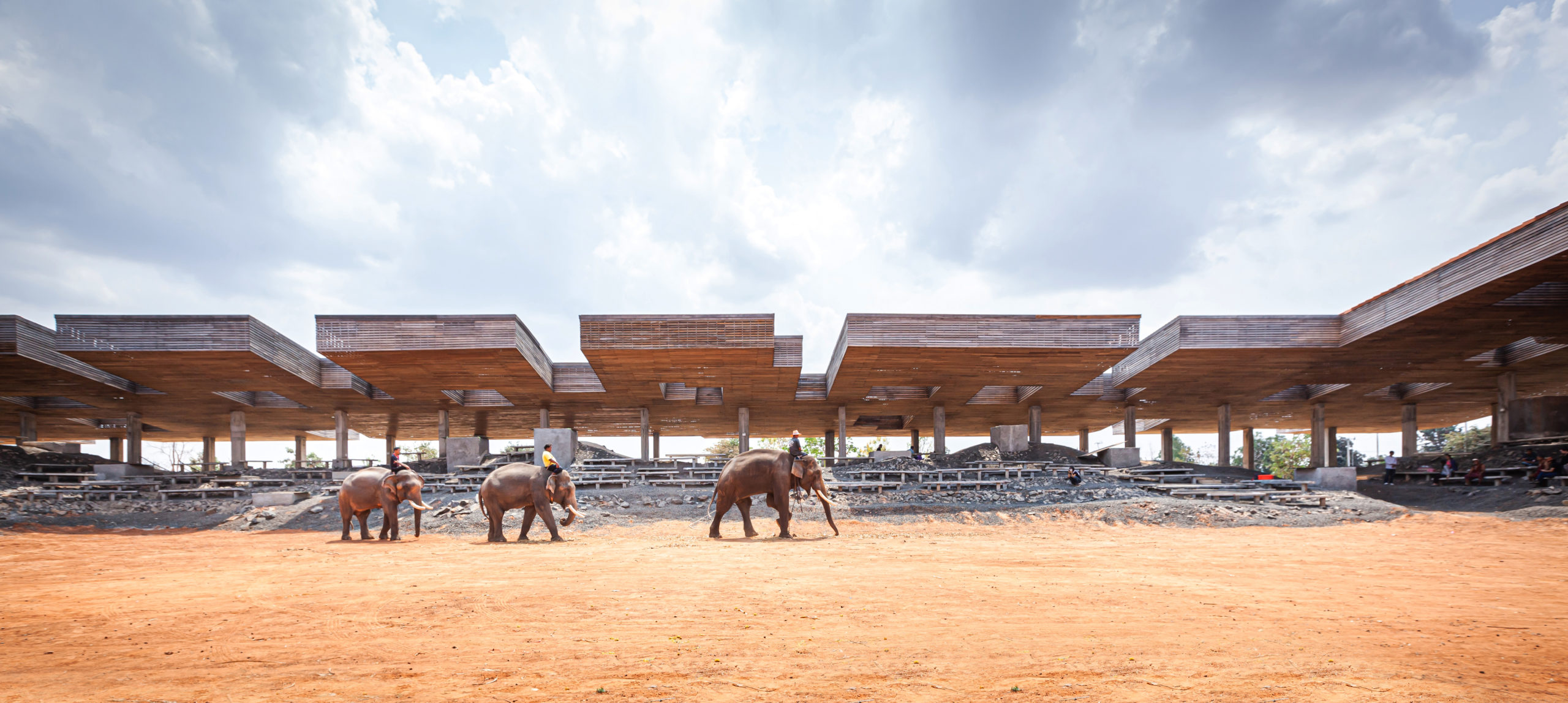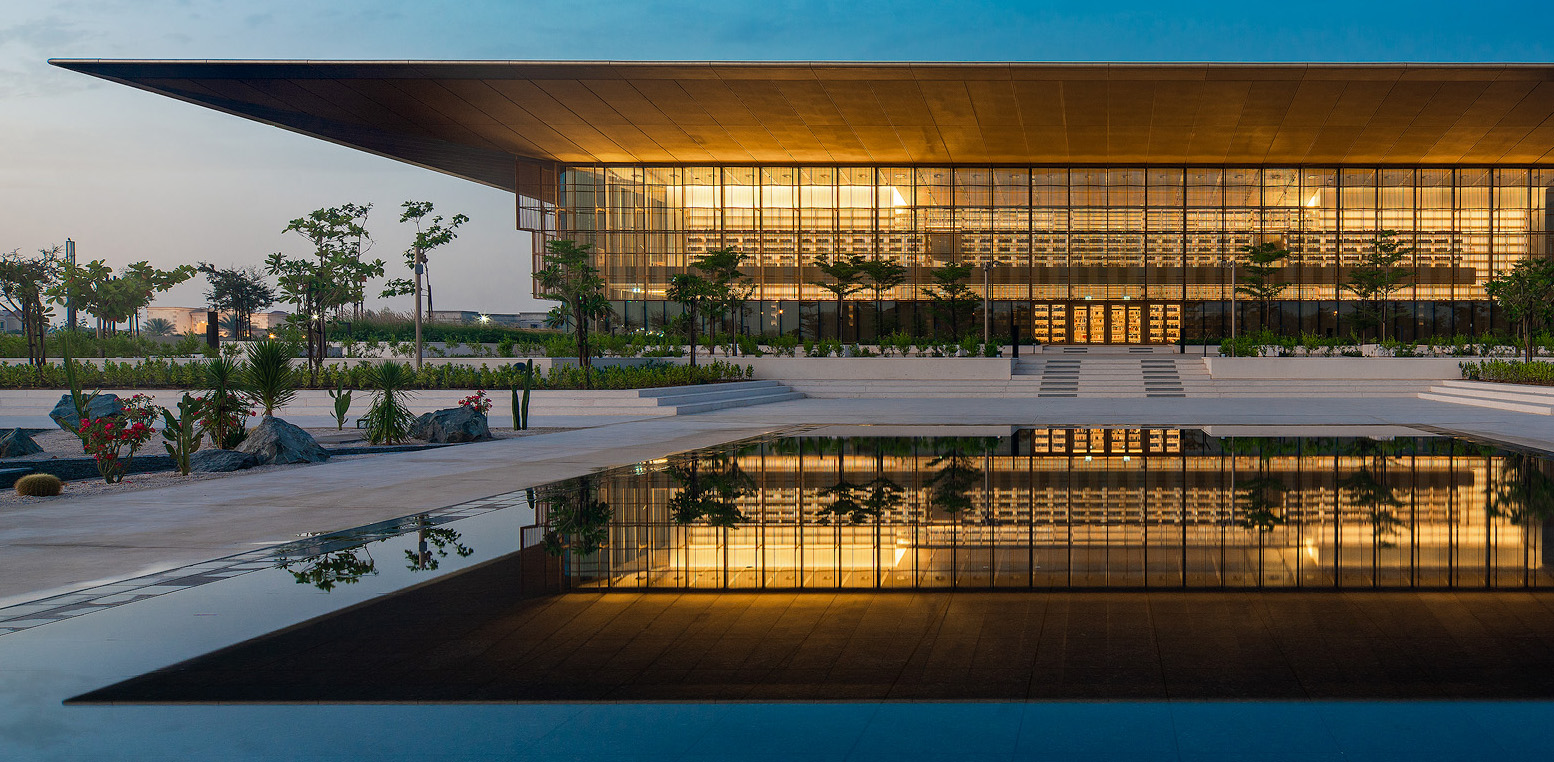Want to see your work published in “Architizer: The World’s Best Architecture,” a stunning hardbound book celebrating the most inspiring contemporary architecture from around the globe? Enter the A+Awards.
Building the future begins with challenging convention. MAD Architects‘ architectural practice rethinks traditional building methods and forms as they reimagine what’s possible. Take for example the Chaoyang Park Plaza project, where the team approached the design as an expansion of nature. Extending park space into the city, the project reinterprets classical Chinese garden architecture, bringing nature and the built environment together.
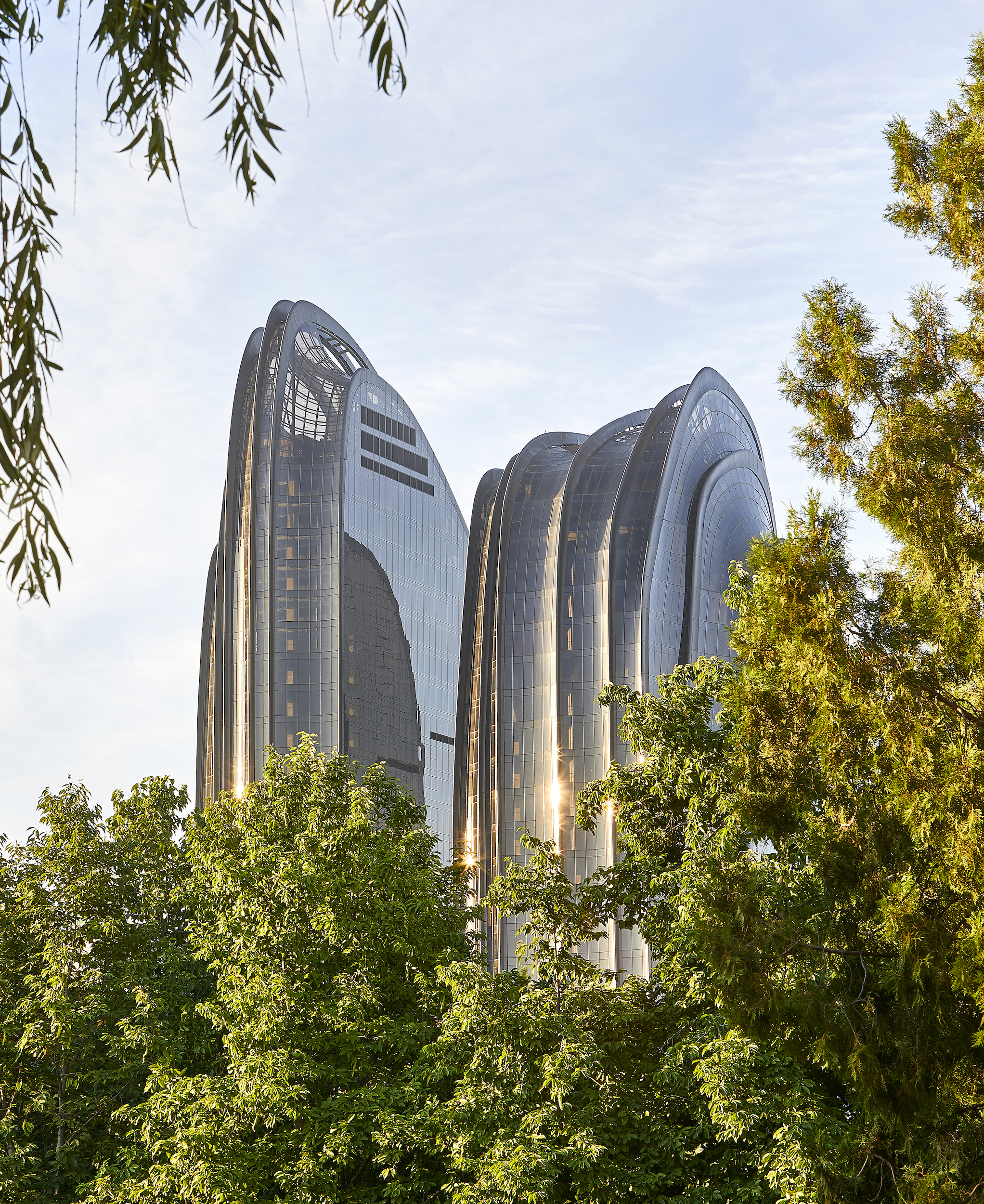 At the heart of the Chaoyang Park Plaza project is two asymmetrical office towers. Imagined as two “mountain peaks” growing out the nearby lake, their design features a connective atrium with a glass rooftop. Located on the southern edge of Chaoyang Park ─ the largest remaining park in Beijing’s central business district area ─ the project was made to unfold like a Shanshui painting on an urban scale. The development includes nearly 240,000 square yards of area and ten buildings.
At the heart of the Chaoyang Park Plaza project is two asymmetrical office towers. Imagined as two “mountain peaks” growing out the nearby lake, their design features a connective atrium with a glass rooftop. Located on the southern edge of Chaoyang Park ─ the largest remaining park in Beijing’s central business district area ─ the project was made to unfold like a Shanshui painting on an urban scale. The development includes nearly 240,000 square yards of area and ten buildings.
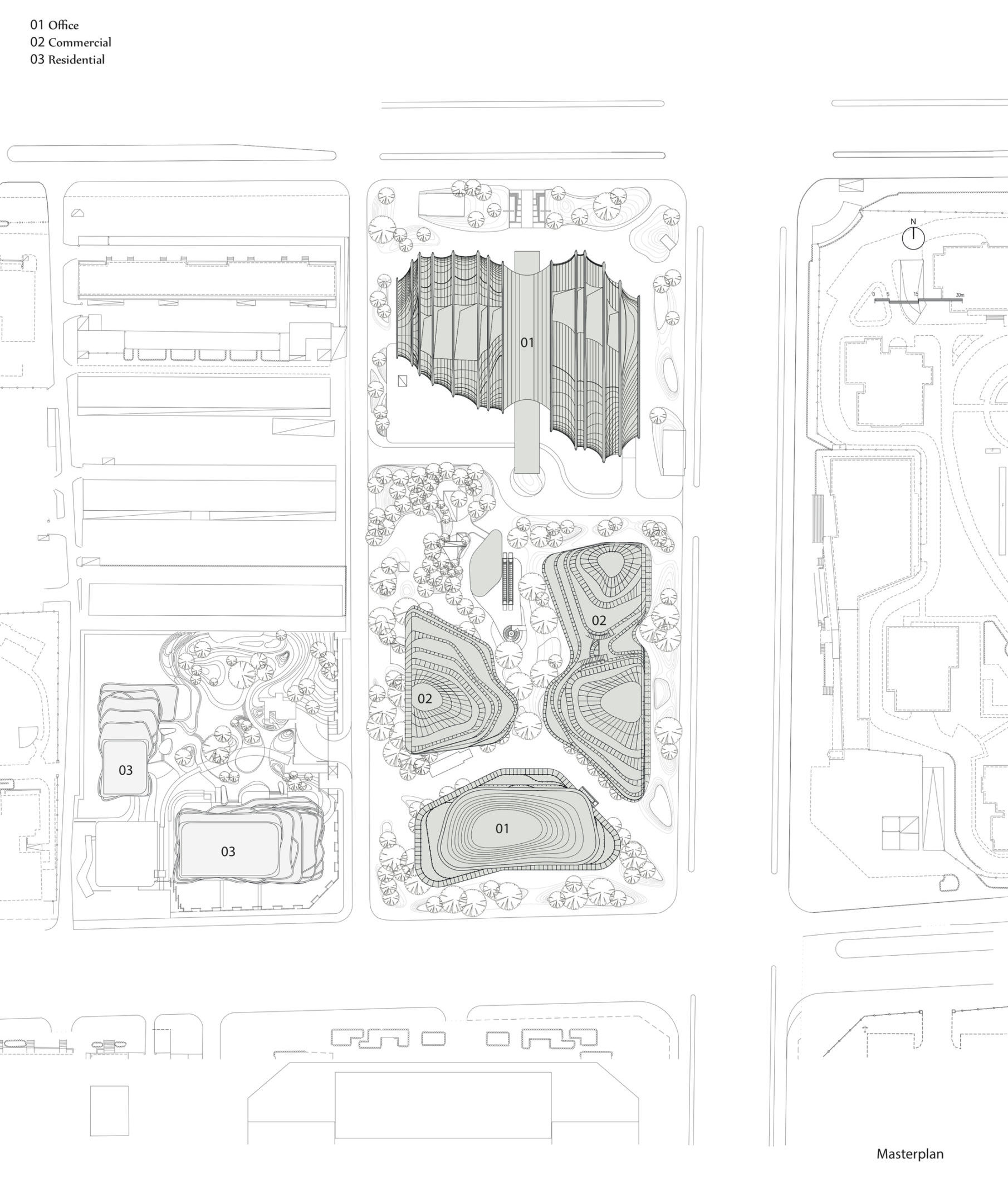 Spearheaded by Junhao Real Estate Beijing Jingfa Properties, the project broke ground in April 2014 and the topping-off ceremony took place in June 2015. The plaza was completed in December 2017. As the team outlines, the plaza project sought to introduce natural forms and spaces, “mountain, brook, creek, rocks, valley and forest,” into the city. MAD also explains that the landscape between the buildings incorporates traditionally Eastern landscape elements such as pine trees, bamboo, rocks and ponds.
Spearheaded by Junhao Real Estate Beijing Jingfa Properties, the project broke ground in April 2014 and the topping-off ceremony took place in June 2015. The plaza was completed in December 2017. As the team outlines, the plaza project sought to introduce natural forms and spaces, “mountain, brook, creek, rocks, valley and forest,” into the city. MAD also explains that the landscape between the buildings incorporates traditionally Eastern landscape elements such as pine trees, bamboo, rocks and ponds.
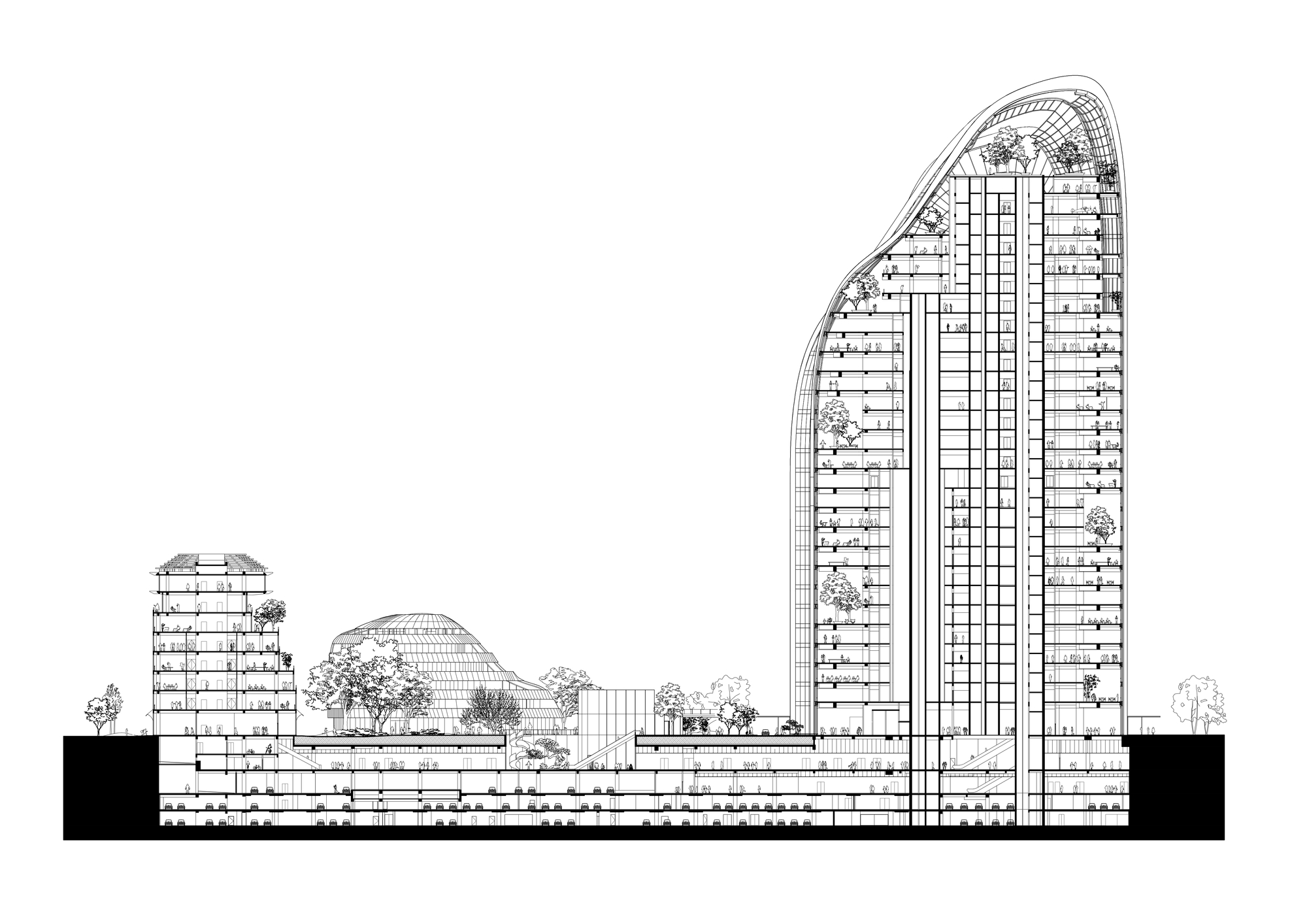
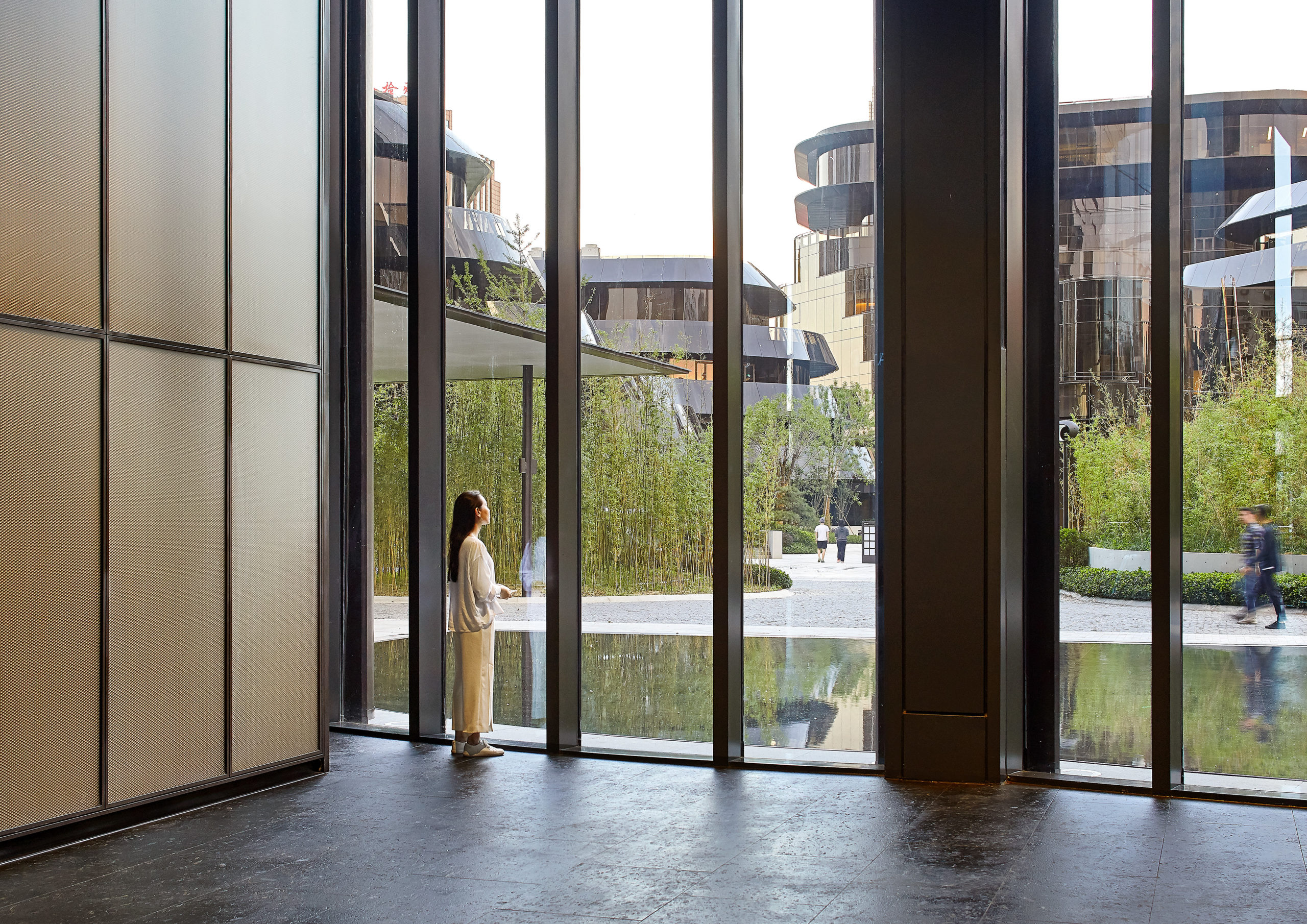 The environment is shaped by smooth, curved surfaces of black and white, recalling traditional Chinese ink paintings. Working with facade consultant RFR Asia, the team also partnered with San Form Limited to bring streamlined and continuous curved facades to life. The two main towers feature a core-tube framing system made from steel-reinforced concrete to provide lateral stiffness and fire resistance at a lower cost.
The environment is shaped by smooth, curved surfaces of black and white, recalling traditional Chinese ink paintings. Working with facade consultant RFR Asia, the team also partnered with San Form Limited to bring streamlined and continuous curved facades to life. The two main towers feature a core-tube framing system made from steel-reinforced concrete to provide lateral stiffness and fire resistance at a lower cost.
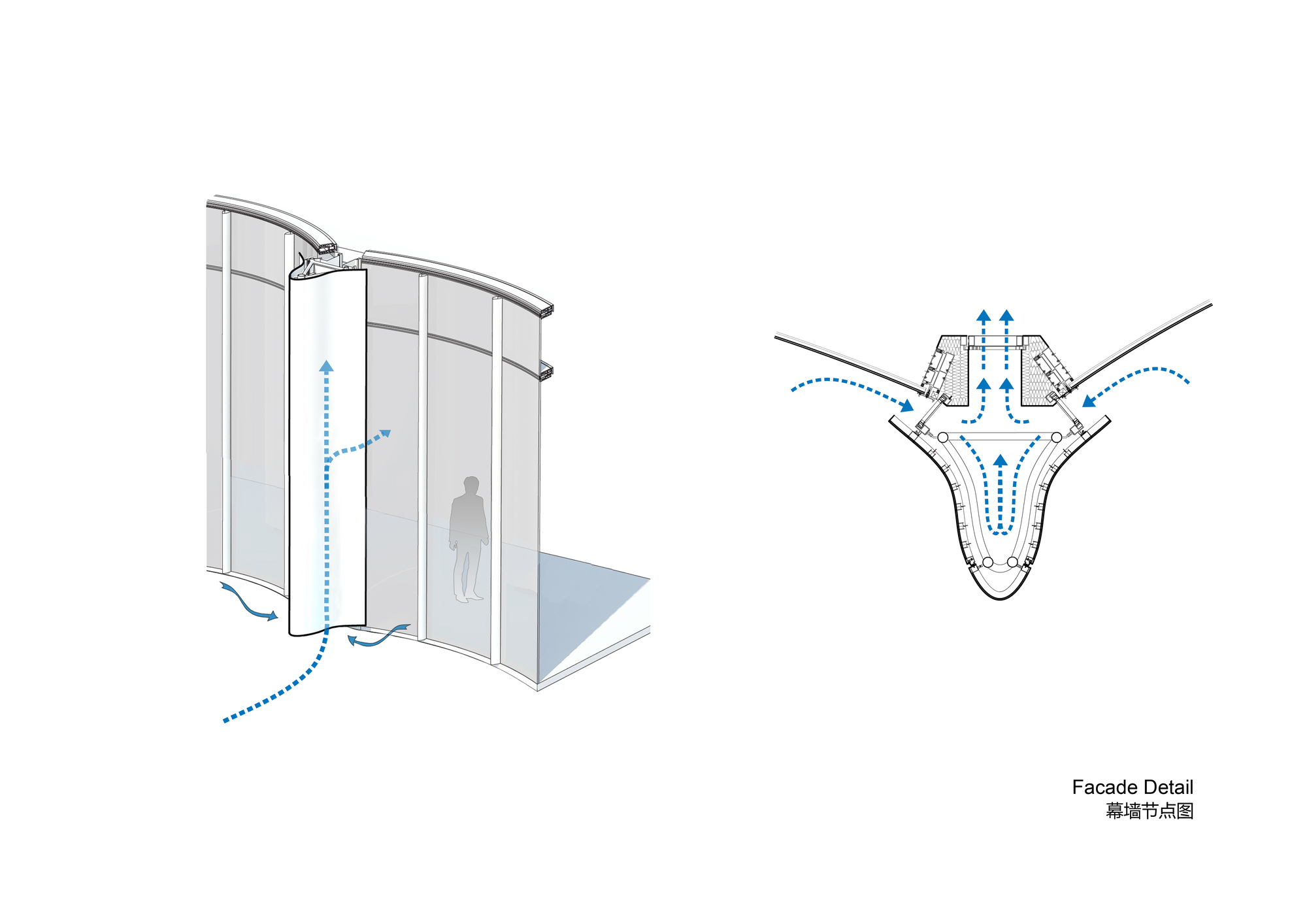
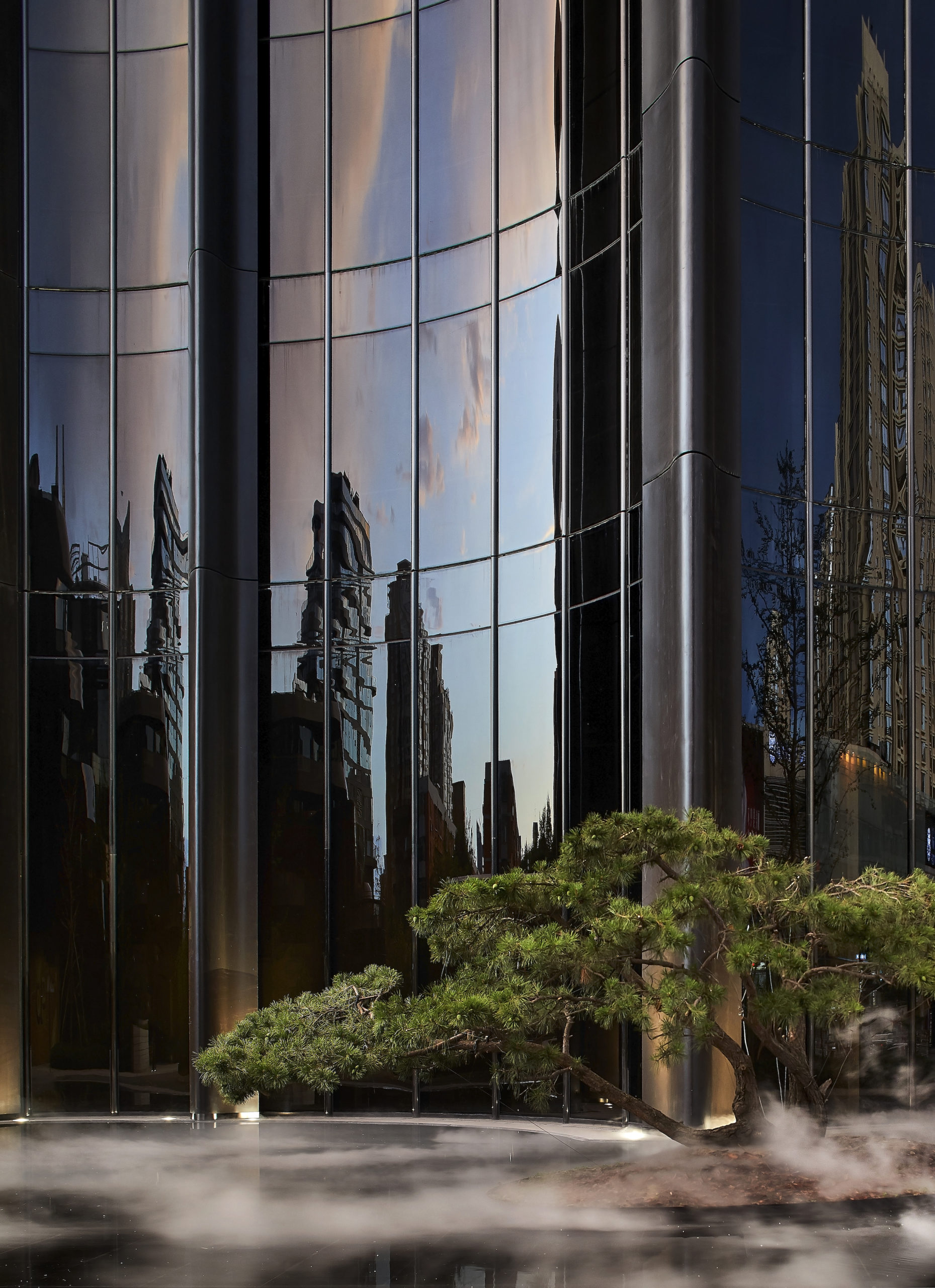 The exterior glass façade of the buildings is made from tinted glass to replicate the ink-based paintings. The vertical fins seen on the exterior emphasize verticality of the towers and double as a ventilation and filtration system, drawing fresh air indoors.
The exterior glass façade of the buildings is made from tinted glass to replicate the ink-based paintings. The vertical fins seen on the exterior emphasize verticality of the towers and double as a ventilation and filtration system, drawing fresh air indoors.
“In modern cities, architecture as an artificial creation is seen more as a symbol of capital, power or technological development; while nature exists independently,” says architect Ma Yansong, “It is different from traditional Eastern cities where architecture and nature are designed as a whole, creating an atmosphere that serves to fulfill one’s spiritual pursuits.”
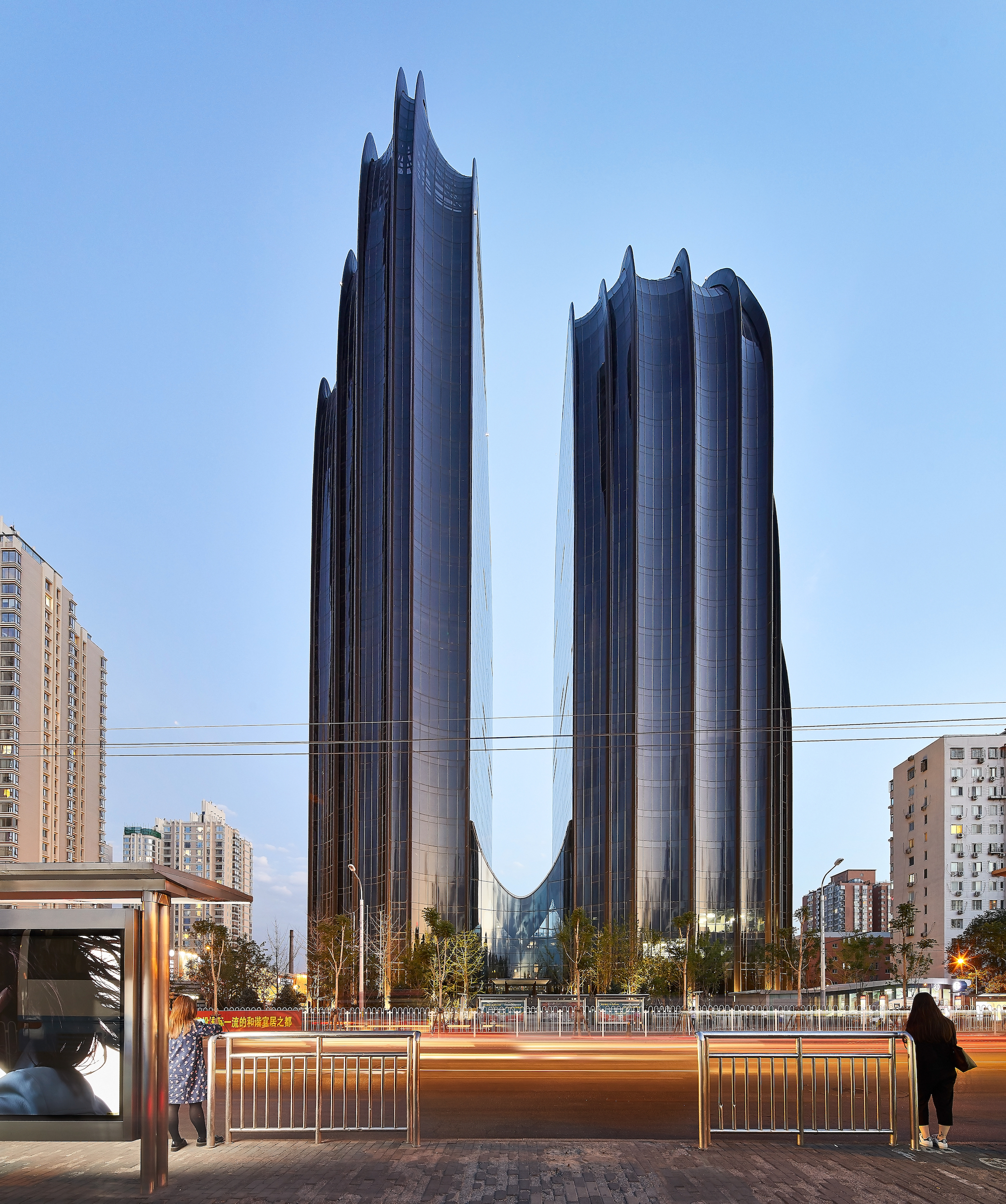 “We want to blur the boundary between nature and the artificial, and make it so that both are designed with the other in mind,” he adds,”then, the argument in the modern logic of humans to protect or to destroy nature will no longer exist if we understand and see humans and nature as co-existing. Human behavior and emotion is part of nature, and nature is where that originates and ends.”
“We want to blur the boundary between nature and the artificial, and make it so that both are designed with the other in mind,” he adds,”then, the argument in the modern logic of humans to protect or to destroy nature will no longer exist if we understand and see humans and nature as co-existing. Human behavior and emotion is part of nature, and nature is where that originates and ends.”
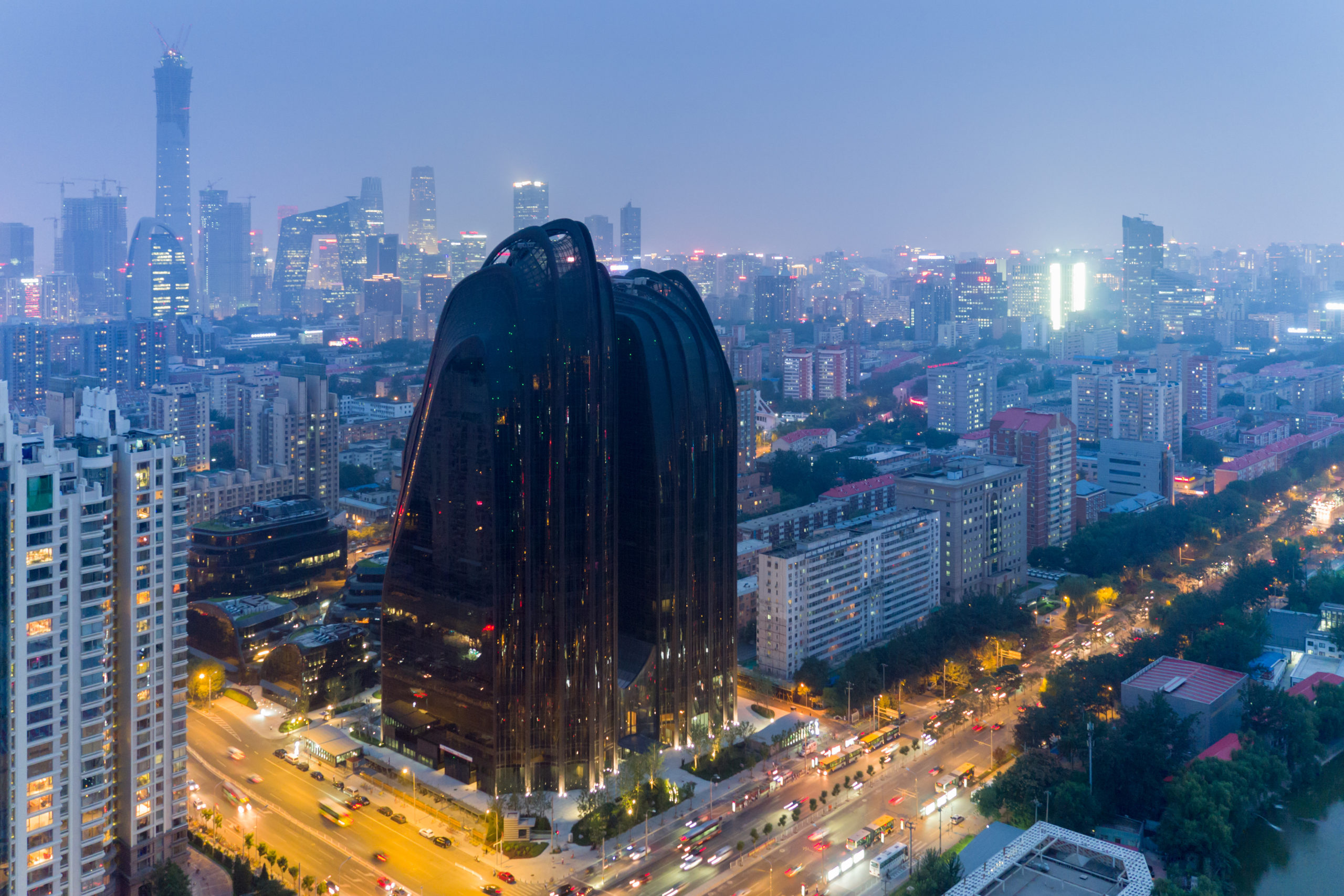 Beyond the two signature towers and their curved facades, the smaller-scale commercial buildings were made to look like mountain rocks that have been eroded. Together, they form a secluded urban garden in the middle of the city. Japanese graphic artist Kenya Hara led the design of the “simple” and “refined” signage system for the project.
Beyond the two signature towers and their curved facades, the smaller-scale commercial buildings were made to look like mountain rocks that have been eroded. Together, they form a secluded urban garden in the middle of the city. Japanese graphic artist Kenya Hara led the design of the “simple” and “refined” signage system for the project.
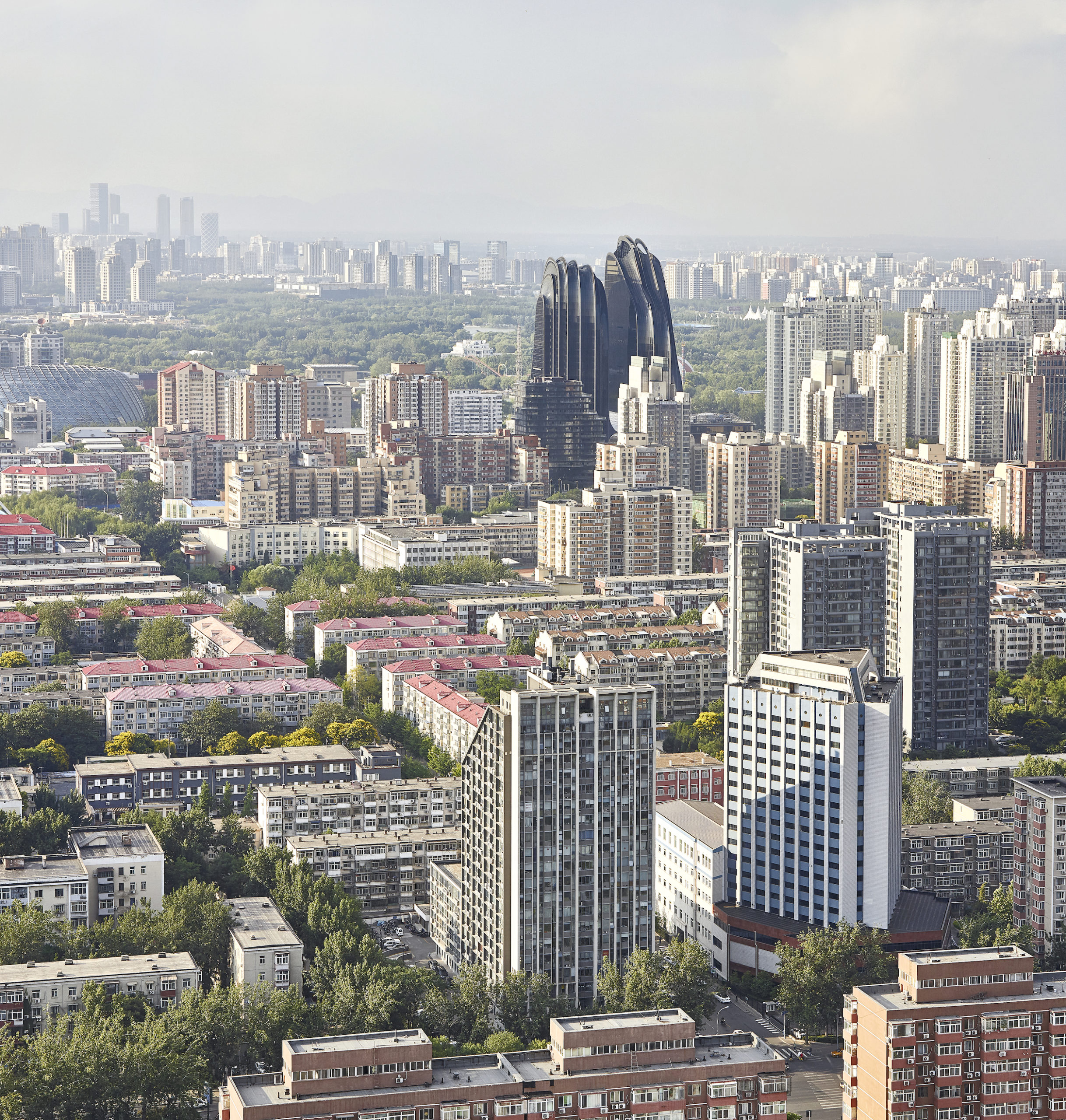 The building has been awarded the LEED Gold Certification by the US Green Building Council as it integrated sustainable design and construction. As an iconic project, the Chaoyang Park Plaza reimagines what’s possible to build a new formal language and challenge convention through the details.
The building has been awarded the LEED Gold Certification by the US Green Building Council as it integrated sustainable design and construction. As an iconic project, the Chaoyang Park Plaza reimagines what’s possible to build a new formal language and challenge convention through the details.
Want to see your work published in “Architizer: The World’s Best Architecture,” a stunning hardbound book celebrating the most inspiring contemporary architecture from around the globe? Enter the A+Awards.
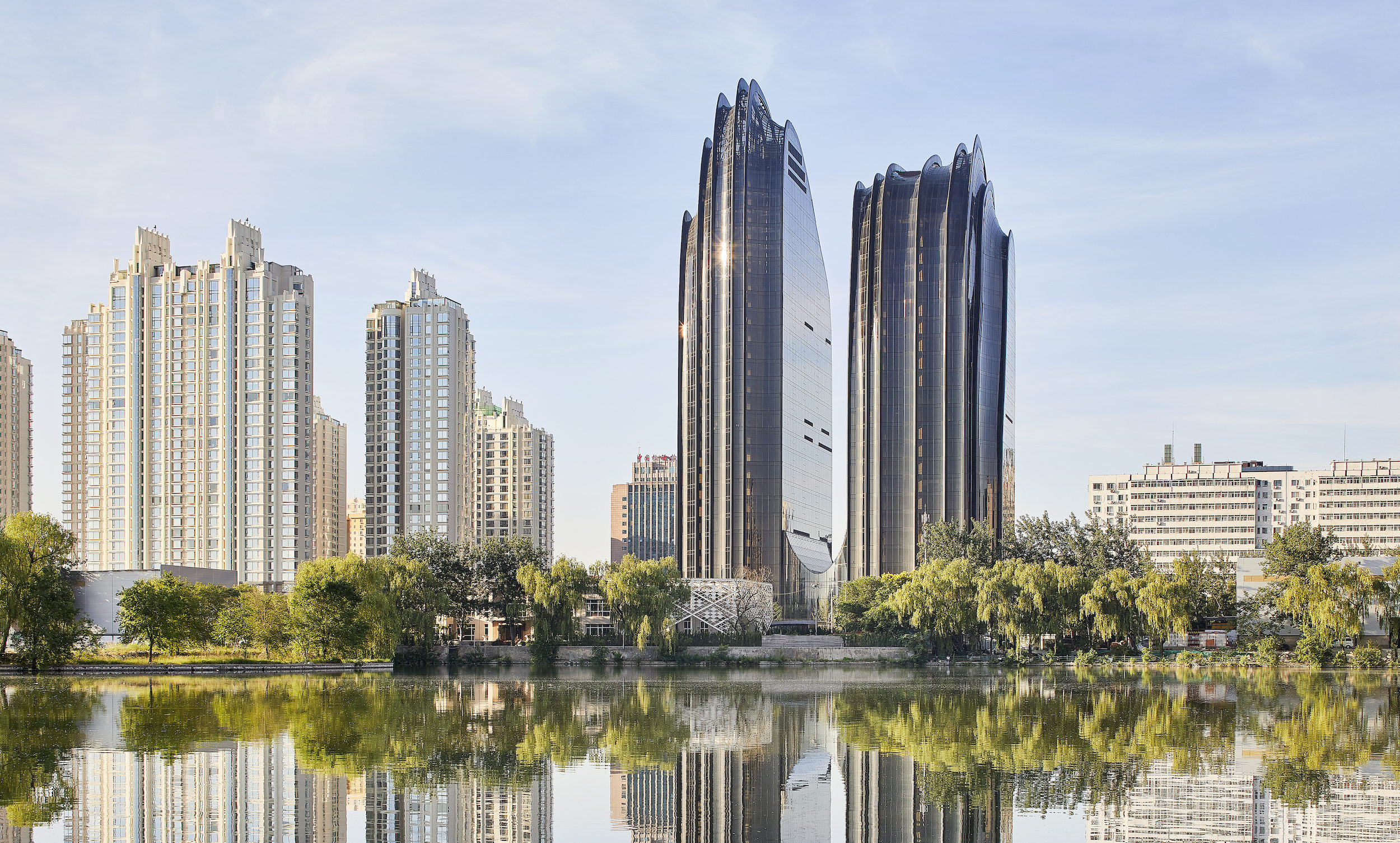
 Chaoyang Park Plaza
Chaoyang Park Plaza 